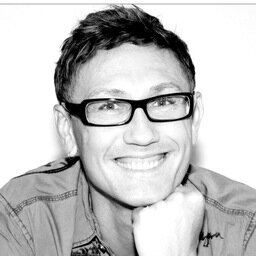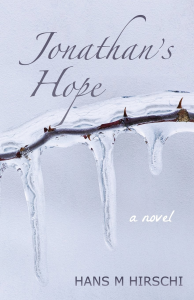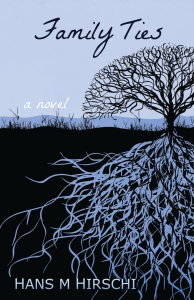Interview – Hans Hirschi, author of The Opera House
Self-Publisher’s Showcase: Today we are joined by Hans Hirschi, author of newly released, THE OPERA HOUSE. Welcome to the Showcase Lounge, Hans.
Hans Hirschi: Thanks guys, it’s a pleasure to be here!
SPS: For any of our readers that haven’t come across your work previously, can you take a moment to tell us all a little about yourself?
HH: Not much to tell really. Average bloke, married, with a son. I have a background in adult education and channel management. I’ve always had an interest in writing and I got a chance to spend a few months writing before our son was born, and from there one thing led to another…
SPS: We’ll start, if we may, with your most recent work, The Opera House. What could someone expect if they picked up a copy?
HH: I’m really proud of this story. It has many facets and will hopefully appeal to a wide audience. There is suspense, several unexpected twists and turns in the plot, social commentary, love and romance.
SPS: Raphael doesn’t react well to the death of his son. How hard did you find writing about his issues and struggles?
HH: *chuckles* Giving away trade secrets? Let me put it this way. As a father, I am often thinking about different aspects of life and death, even in relationship to my son. Having had to wait 25 years before becoming a dad, I’ve had plenty of time to play through every scenario. What happens to Raphael is not something I would imagine happening to me, but I think it is understandable that a parent can’t cope with the death of a child.
SPS: What do you think it is that draws him towards helping Brian?
HH: Not sure, you’d have to ask him… Even though I am the writer, or my brain rather, I don’t always have all the answers. I think every reader will be coming up with different answers. I’d rather not take that away from them. But I think it is a combination of circumstances, being pushed into it by Warren, fatherly instinct, and a sense of responsibility.
SPS : The path to love never runs smoothly and Raphael certainly has a lot of obstacles to overcome, how does he grow from these experiences?
HH: Ah, another one of those questions Raphael would be better suited to answer. I think as humans, we have a responsibility to grow throughout our lifetime. That, to me, is the meaning of life, certainly not 42. Raphael learns not to take things for granted, to grasp opportunities, not to overanalyze, and – with regards to the title of the book – that he, as an architect, has a larger responsibility in his work than just to please the owner of the building.
SPS : Can we expect a happy ending or is that giving too much away?
HH: I try to end my books on a positive note, let me put it that way. But, as my editor would say, it makes little sense to tie it all up nicely with a bow, the sort of “happily ever after” sort of ending. We leave our protagonists at a time where it makes sense to leave them to live their lives without our prying eyes.
SPS : What would you like readers to take away from the experience of reading THE OPERA HOUSE? Or, do you prefer to see people decide for themselves?
HH: Definitively! I’m an author, not a preacher. Once on the book shelves, the book lives a life on its own, and I’ve learned a long time ago that every reader sees different aspects, different details. I remember once sending out a very early draft of “Family Ties” to a few friends for feedback. They came back and one answer in particular had a deep impact on me. Someone thanked me for not making Sascha a “pretty” person, making it easier to identify with him. That is when it struck me that I hadn’t even described him, physically i.e. Sascha was framed by his inner qualities, his thoughts, thus enabling people to easily superimpose themselves.
I try to do the same thing across the entire story, giving people the chance to do the thinking for themselves. It’s the main difference between the book and the movie. In the book, we get to direct the image ourselves, rather than having to rely on the director’s vision.
SPS: Prior to THE OPERA HOUSE, you released two previous novels. Firstly, let’s have a chat about Jonathan’s Hope. Where did the idea for the story come from?
HH: I had just finished my debut novel, “Family Ties”, and wanted to write a short story for my blog, as a teaser if you will, for my readers. After a few pages, as I was about to wind down and finish off the story, someone knocked on Dan’s door: Jonathan. I had to explore why he was in that forest and why he knocked on Dan’s front door.
SPS: “Abandoned to freeze to death in a winter forest by his father because of his homosexuality?” Tell us about Jonathan’s initial struggles after such a horrific parental betrayal.
HH: Well, his initial struggle is that of survival. His father, the coward he is, couldn’t bring himself to kill Jonathan, so rather, he leaves him to die in a huge forest, all by himself, threatened by the approaching winter. By chance, Jonathan stumbles across a lonely cabin on a lake shore, Dan’s cabin. The rest is an endearing story of love, coming of age and human growth.
SPS: Dan has plenty of issues of his own, how easy was it write about their growing relationship?
HH: Easy. And I don’t say that to brag. But my writing process is extremely unconscious. I get an image (e.g. Dan sitting by the fire place, that’s the short story I wanted to write) and things sort of evolve from there. I’m often surprised by the curve balls my unconsciousness throws into the path of my heroes. I think the only time I consciously thought about Dan and Jonathan’s relationship was in terms of their chance of success. A few pages later, something drastic happens… My brain had been paying attention. However, never could I have imagined what it had come up with.
SPS: As the name would suggest Family Ties is very much focused on Family. Tell us about the novel.
HH: I read somewhere that every author writes at least one autobiographical novel. This would be mine. The story arc is about two brothers reuniting to bury their mother who has passed away from Alzheimer’s. Oddly, I wrote this story about a year ago, thinking about my own mother. I never thought that she’d pass away so quickly. In the book, the father of the family had already passed away and the brothers are left to struggle with themselves, unresolved conflicts amongst themselves, relationship issues in their respective marriages etc.
SPS: As with your other works there is a heavy presence of personal struggle involved. Is this something you consciously look to tackle?
HH: I think so, that and a healthy dose of social commentary. It’s my way of avoiding to pay a shrink to hear what I already know. *laughs* It goes back to what I said earlier. I see it as our primary responsibility as humans to grow, to learn, to better ourselves. I hope that the characters in my books are better people at the end of their journey in the book than they were when we first meet them.
SPS: What are the reasons that have led to Sascha and Mike having such a strained relationship?
HH: Who’s to say that you have to like someone just because you’re siblings? I think that’s the starting point in their relationship. They are very different people, and even though they are brothers, their journeys through life have been very different. There’s envy, jealousy, and a lack of communication that isn’t uncommon in families.
SPS: Can we expect all issues to be successfully resolved?
HH: Good question. I’m not sure. It may seem that way, because at the point where we leave the Meyer family, they seem to be on the right track, but what’s to say that Mike’s father in law doesn’t have a relapse, that Sascha strays again or… I don’t know, honestly.
SPS: Now would be a good time to ask if you can let us in on what we can expect in the near future from yourself?
HH: I don’t know that, either. I’m waiting for my brain to serve me the next ‘image’ from where to start my next book. Right at this point, I’m more concerned with finding work to pay my bills and help support my family than to spend more time & money writing books… But who knows, inspiration might strike when I least expect it.
SPS: Changing the subject slightly to cover design; can you tell us about how the cover to THE OPERA HOUSE came about?
HH: This is really funny. When I was done with my first two books, they were both written in a couple of months, I asked for advice with regards to an editor, and was referred to a couple of people through contacts on Twitter. One of them, the editor of “Family Ties” and “The Opera House”, Bonnie Hearn Hill, a famous author in her own right, recommended that I speak to Christopher Allan Poe (yes, he’s related to the author), a friend of Bonnie’s and an amazing visual artist. Chris, who also writes thrillers, has created all my covers. He reads the manuscript and comes up with a few ideas for me to consider. In the case of “The Opera House”, that process was delayed as I didn’t have a title for the book. We actually struggled for quite some time, but when the mist cleared, and I knew what the title had to be, Chris just sent me this one image, and I immediately fell in love with hit. It’s an allegory to an opera’s playbill.
SPS: Was the Self-Published/Indie-Published route always your preferred route for your work?
HH: I think so. My experiences with publishing English literature with a Swedish publishing house were dismal at best. I once published a non-fiction book that way, and had little to no support, nor did they have the know how for foreign markets. I guess we were all naïve in that respect. And for a Swedish author to get published by an US publisher seemed even more difficult. Besides, it really isn’t that difficult any more these days. I have author friends who work all on their own. Personally, I prefer to work in a team, I’ve got a couple of editors, and Chris to toss around ideas with. It’s a different way of making sure there’s quality to what we do.
But the most important reason NOT to use an external publisher is to retain your artistic freedom. I’ve heard of too many horror stories from friends in the industry who were forced to make significant changes to their stories, to ensure a commercial success. I only have those discussions with my father, who thinks I should stop writing about gays…
I still use a publishing house for legal and tax reasons, I just happen to own part of it, together with my husband and a couple of friends.
SPS: If you could give one piece of advice for someone looking to get into writing, what would it be?
HH: Follow your heart, write the story you need to tell. But once that is done, get help. The most important thing is to have a great editor. Don’t be cheap. Spell checks are a good start, but you’ll need a human being to read your story and give you feedback on plot holes etc. Listen to your editor, be open to make the necessary changes. Second piece of advice: judge a book by its cover. Make sure you have a cover you’re proud of and a cover that sells your book. We are a visual species and our readers will not consider a book with a dull or bad cover.
SPS: Before we bring this interview to a close, it’s your chance to name-drop. Anyone who you feel is deserving of more recognition at present or someone whose writing you have recently enjoyed? Now is your chance to spread the word…
HH: Where to start? There are so many amazing authors out there. Here are the names of a few very close friends I’ve made this year and who were tremendously helpful in different aspects of my own writing: Bonnie Hearn Hill (thriller author), Christopher Allan Poe (thriller/horror), Andrew J Peters (Fantasy), Brandon Shire (Literary), J.F. Smith (Romance), T.J. Klune (Romance), Keiko Kirin (Romance) to just name a few. I have a huge reading list for the upcoming holidays, son permitting.
SPS: Thank you for joining us today Hans, and good luck in the future.
HH: Thanks you for the opportunity. I greatly appreciate it. Happy Holidays and a great 2014, with lots of good new books. Keep up the good work!
SPS: For more information on Hans and his work, please do visit his Author page here. The Opera House is out now, pick up your copy here.

















Leave a Reply